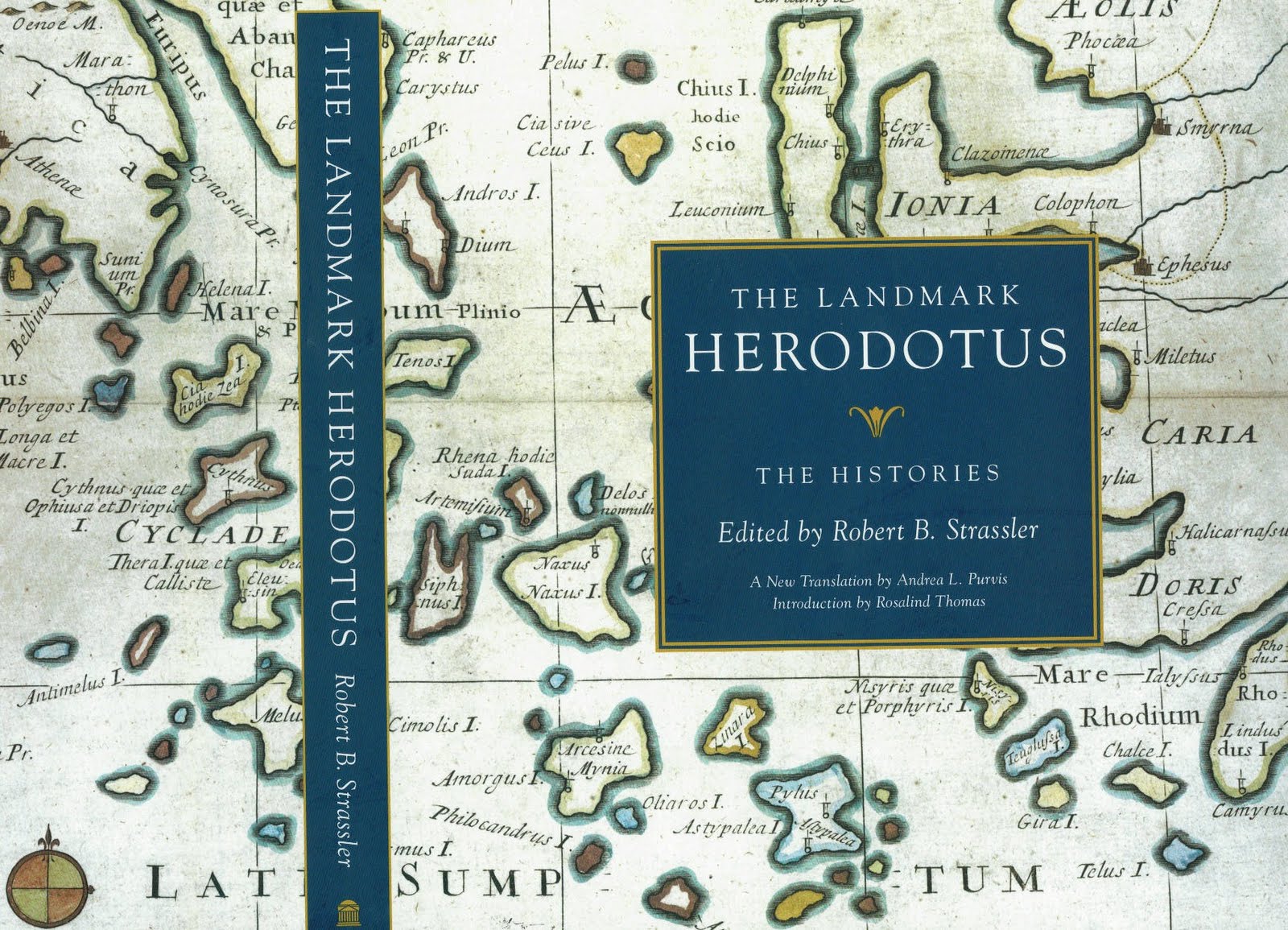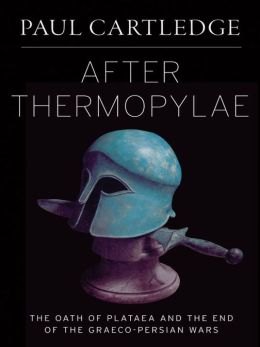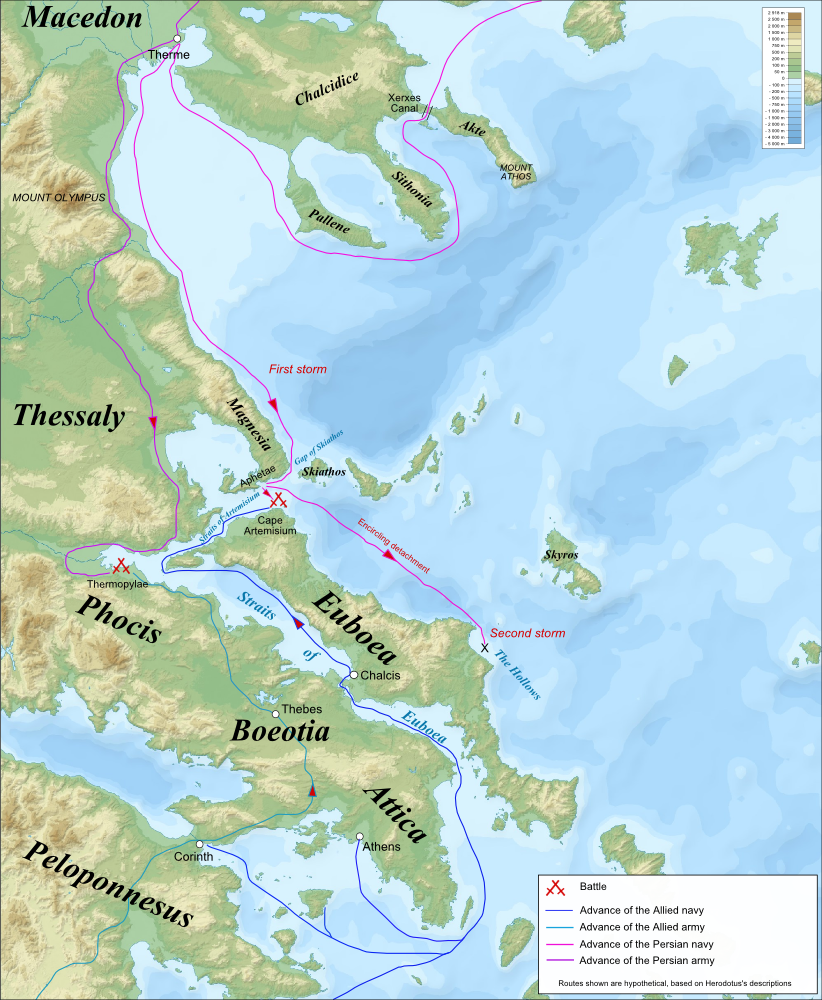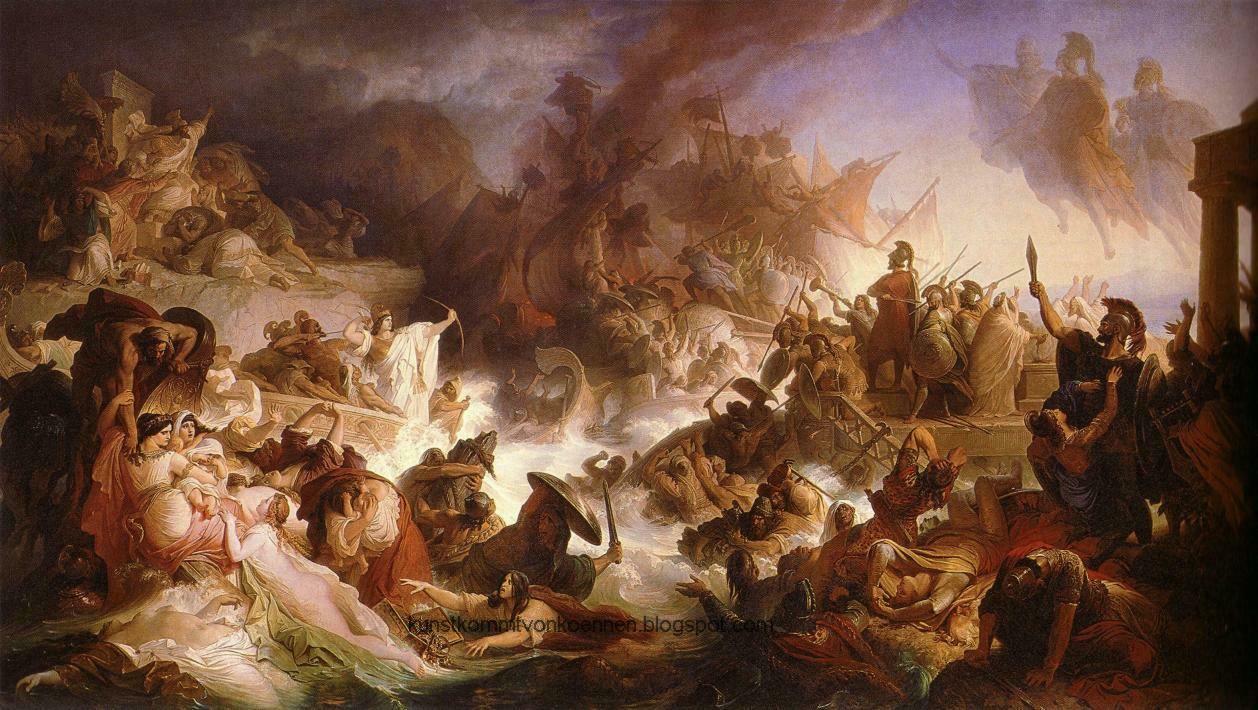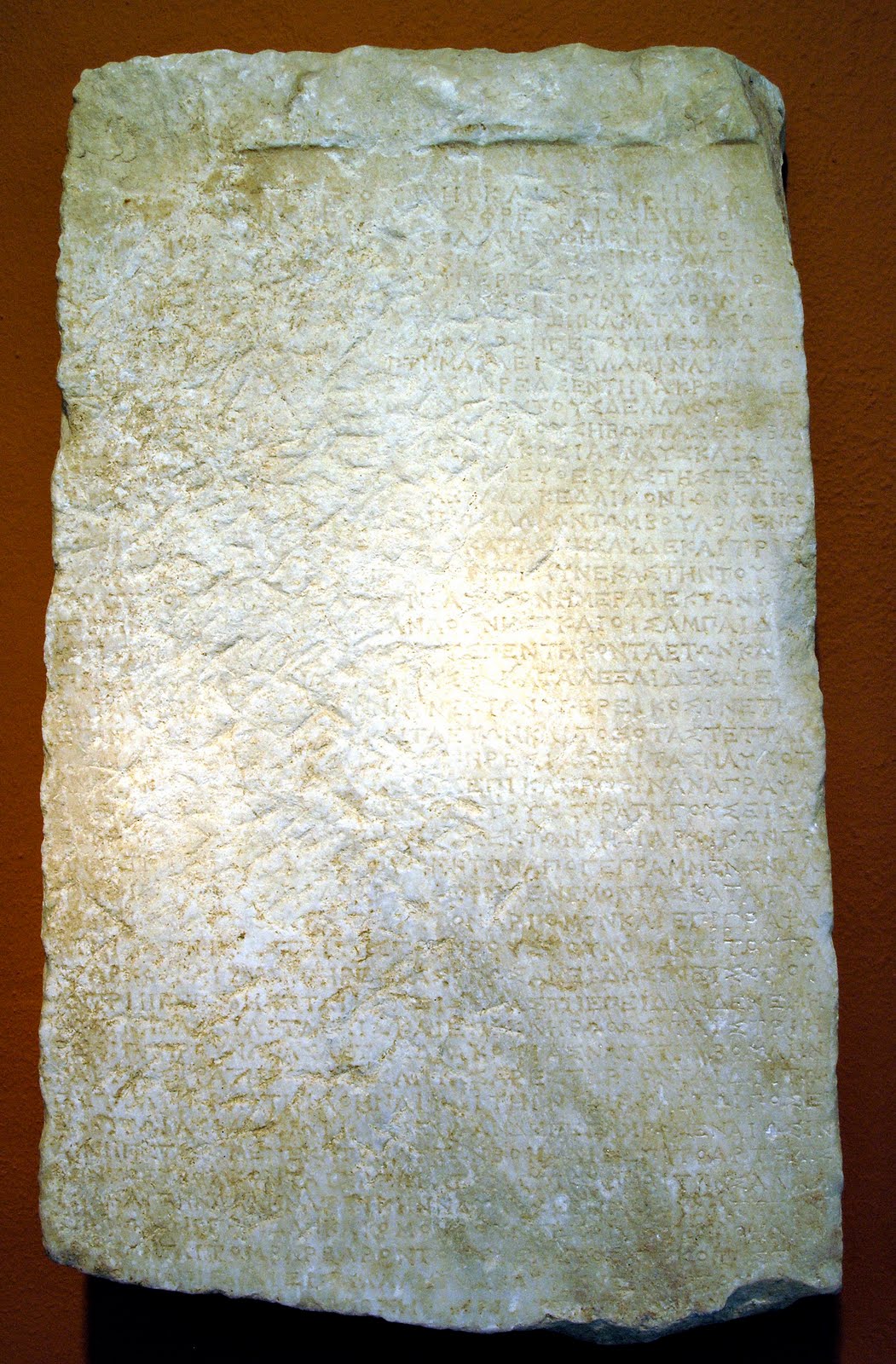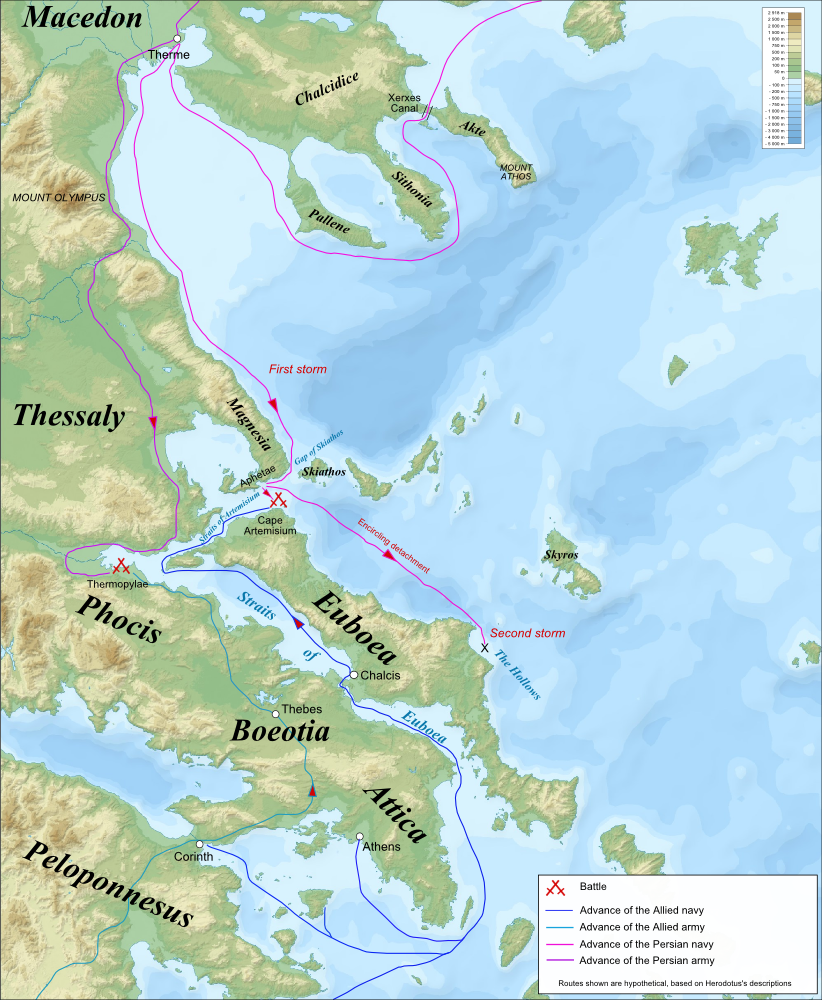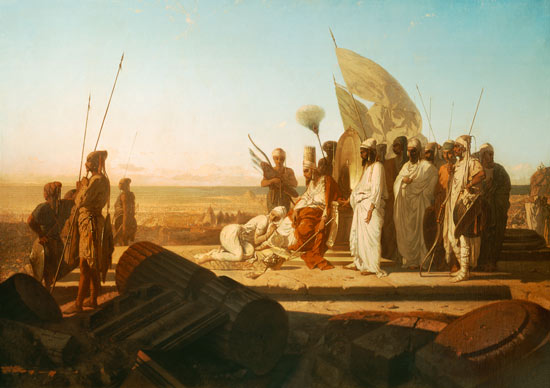So griefs and various disasters shall grip them, as they mourn their destiny of no return, the requital for my ill-wedded violation. Not even those who jouyfully arrive home at last will light votive flames of sacrifice, paying thanks to Kerdylas, the Larynthian. [Zeus] (lines 1087-1092) The glory of the race of my grandfathers will be […]
Tag: The Histories
I know this is last minute but if you have ever been interested in reading (or re-reading) Herodotus’ The Histories, consider signing up for the Reading Odyssey’s reading group beginning on September 17, 2014, and running through March 2015. I have participated in several of their reading groups and have found them extremely helpful and […]
On May 14, 2014 Paul Cartledge and James Romm talked about Herodotus and the two new translations of his Histories. It’s well worth the hour to listen to the salon sponsored by Reading Odyssey, which can be found here. I asked about other recent books on Herodotus they have enjoyed and they provided some books […]
I’m happy to pass along the following information from Reading Odyssey, Inc: Herodotus Salon – With Professors Paul Cartledge and James Romm Wednesday, May 14 7pm (New York time) via toll-free conference call. Reading Odyssey is proud to host a conversation with two top classicists discussing two new translations of the wonderful Herodotus. We will […]
Paul Cartledge spoke at the SPHS Autumn Lecture, Tuesday November 12th 2013 held at The Hellenic Centre in London. Thanks to David Meadows at rogueclassicism for posting a link to this lecture. My post on the book can be found here. “The story I have woven…is one of commemoration, of rivalry, classically ancient Greek rivalry […]
After Thermopylae: The Oath of Plataea and the End of the Graeco-Persian Wars by Paul Cartledge Emblems of Antiquity series Oxford University Press, 2013 ISBN: 9780199747320 Paul Cartledge’s name has been mentioned on this blog several times—he is the A. G. Leventis Professor of Greek Culture in the Faculty of Classics at the University of […]
(From the YouTube description) Dr. Jeremy McInerny [sic], Professor of Classical Studies, examines the tactics and strategy of the Battle of Thermopylae (in present-day Greece) in 480 BCE. Why was the battle fought at this location and was it, as it is often portrayed, a turning point in the confrontation of East and West? This […]
I received an email from Shane Solow pointing me to the Herodotus Project, “an ongoing project documenting in photographs many of the places and artifacts mentioned by Herodotus (c 500 – c 425 BCE) in his Inquiries. This site is updated monthly with photographic tours that are hyperlinked with the text.”
Diana Gilliland Wright provides updated information and links on “The Marathon Stone,” an amazing stone that appears to be the casualty list from the battle of Marathon. The inscription is written in boustrephon and diagonally (see comments for update), and was acquired by Herodes Atticus when he honored his home town of Marathon by constructing […]
I may be obliged to tell what is said, but I am not at all obliged to believe it. And you may consider this statement to be valid for my entire work. – from Book Seven, Paragraph 152 Wow. That’s about all I can manage at this point. What a long strange trip this has […]
This post covers Book Nine from Paragraph 90 through the end of the work, covering the battle of Mycale, the siege of Sestos, and the final anecdotes. The Greeks had sailed to Delos under the command of the Spartan Leotychidas. Messengers from Samos urge the Greeks to travel to their island to attack the Persians […]
So here I am within sight of the finish line of this project I semi-unwittingly tackled and I’m slamming on the brakes to post about a topic I glossed over in Book Seven. For this post I wanted to look at the battle of Himera in Sicily that was supposed to have occurred on the […]
The Persians were not inferior in courage or strength, but they did not have hoplite arms, and besides, they were untrained and no match for their opponents in tactical skill. They were dashing out beyond the front lines individually or in groups of ten, joining together in larger or smaller bands, and charging right into […]
This map covers earlier battles, but it also provides the topography of the area surrounding Plataea (located just below the “oe” in Boeotia) Picture source After dinner, as they lingered drinking, the Persian on the couch with Thersandros asked him in Greek what country he came from, to which he replied, “Orchomenus.” The Persian then […]
The Athenians first answered Alexandros as follows: “We ourselves are already well aware that the forces of the Mede are many times greater than our own, so there is no need to admonish us about that. Nevertheless, we shall defend ourselves however we can in our devotion to freedom. So do not attempt to seduce […]
Sea Fight at Salamis, Wilhelm von Kaulbach, 1868 Picture source As Themistokles was saying this, Adeimantos the Corinthian again attacked him, ordering him to be silent since he had no fatherland, and forbidding Eurybiades to allow any man who had no city to propose a motion for a vote. He told Themistokles that when he […]
The Troizen decreePicture source When the allies brought their ships to Salamis, the Athenians put in at their own shore and made a proclamation that every Athenian should try to save his children and other members of his household in any way that he could. Most of them dispatched their households to Troizen, through some […]
Thermopylae & Artemision campaign Picture source We know very little of Pindar’s life. He was born in or about the year B.C. 522, at the village of Kynoskephalai near Thebes. He was thus a citizen of Thebes and seems to have always had his home there. But he travelled among other states, many of which […]
The Spartans provided the commander who had supreme authority over them all, Eurybiades son of Eurykleides. For the allies had refused to follow Athenian leaders and had asserted that unless a Laconian led them, they would call off the anticipated assembly of their armed forces. … [T]he Athenians yielded to them because they considered the […]
Xerxes at the Hellespont, Jean Adrien Guignet I exercised my kingship on condition that I led a hard, sober and industrious life, just like that of my people. I was king solely to defend my fatherland and to ensure the rule of law. My kingship gave me the power to do good without permitting me […]
